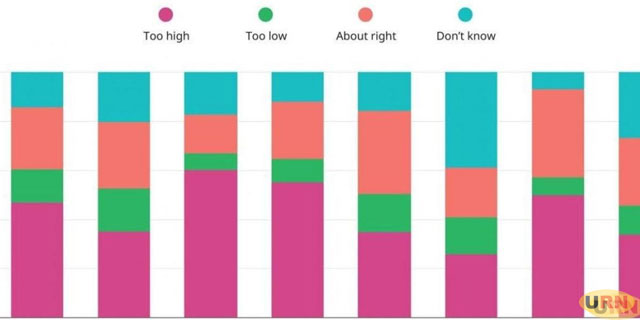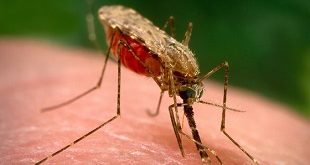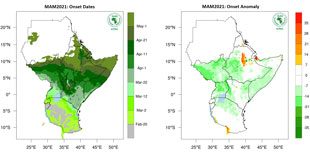
Bundibugyo, Uganda | THE INDEPENDENT | Young women in Bughendera County, Bundibugyo district have decried the limited access to family planning services in the area, blaming this for the increasing cases of early pregnancies.
They say that while they prefer to be in charge of their reproductive health, the lack of services in the mountainous and isolated county means they make unprecedented choices with devastating effects on their livelihood and future.
Lillian Vumulia, a youth from Bgombwa in Busaru Sub County, narrates how she dreamt of becoming a nursing officer after her education. However, her dream was shattered by an unwanted pregnancy at the age of 18. While Vumulia had heard about family planning, she could not trek more than 20 kilometres to the nearest facility to access the service.
“…when I got pregnant I feared to tell my parents and had to run away from home, gave birth at a friend’s place and my boyfriend abandoned me, if I had these services maybe I would have met my dream to be a nursing officer,” Vumulia said. Today she is a single mother doing odd jobs to take care of her child.
Similarly, Agnes Namara got her first child while in primary seven and was chased from home as soon as she gave birth. Namara believes that young women like her need information on their reproductive and sexual health to fully exercise their right to choice and to keep themselves, their partners, and their children healthy.
“In the village, we don’t have family planning providers and that means someone has to walk long distances to the main hospital, today I need the services so that I can be able to control a second pregnancy,” she said.
19-year-old Jackline Kabugho is a mother of two and she too blames her early motherhood on limited information, lack of access to planning services and poverty in her family.
She told URN that while she was in a sexual relationship at a young age, she feared seeking services from the available facilities because they do not have youth-friendly services for such services. She urges the government to create friendly points for young people where they can get such services without fear.
“If the services were closer to me, I would have accessed them and wouldn’t have given birth to these children at my age, I could maybe be a school teacher because it is all that I desired while in school…” Kabugho narrated.
Racheal Kabugho had to sell off her retail shop in Ntandi town council after she had complications while giving birth in 2022. The 20-year-old is now living with her grandmother as she struggles to raise her child.
“I had no intentions of giving birth at 19, not at all… I had attempted to get family planning but our facility did not have short-term methods and I feared those long ones because the man could easily find out. “Kabugho narrated
Meanwhile, Sarah Kabagenyi, who works with Bundibugyo Women with Disabilities Living with HIV Association is concerned that PWDs have never been prioritised when offering family planning services. For example, those with hearing impairments and mobility challenges never access these services, yet they are often sexually exploited by men.
Because PWDs have limited access to family planning, she says they are never in control of the number of children they want to have and many are struggling to raise children as single parents.
Health experts in the area also say that the low-level use of family planning is influencing the fertility pattern and population growth rate in the district derailing the otherwise healthy development of young women and adolescents into adulthood.
Winnie Rose Masika, the Officer in Charge of Family Planning services at Bupomboli Health Centre III in Harugale Sub County, says that the shortage of contraceptives and the health workers to provide them coupled with unfriendly service providers create another barrier.
She adds that most medical distribution systems have not been digitized to address the geographical challenges in Bughendera while the village health teams-VHT are not fully motivated to do the work.
Peace Muhindo, a health worker at Bukangara Health Centre III in Bukonzo Sub-county says the number of young mothers seeking family planning services remains low and attributes this to the low level of men’s involvement. However, she acknowledges that there is limited access to these services pointing out her sub-county that serves other remote sub-counties of Kirirumya and Mbatya.
Annah Kukundakwe, a Senior Programme Officer in charge of Partnership and Networks at the Centre for Health, Human Rights and Development -CEHURD says that while nearly a third of all women in Uganda are becoming mothers during adolescence, it is clear the country is unknowingly ruining the future of young adolescent girls and women.
She says most adolescent girls are sexually violated by men older than them meaning their first sexual encounters are not out of their decisions justifying why they need to have routine access to family planning services.
Kukundakwe wants the government to enforce laws on sexual violence to make it difficult for men to abuse young girls and women but also enable them to access reproductive health services more effectively. She argues that short of this, the country is raising a population that is highly dependent, and uneducated without employable skills a trend which will have an impact on the general national development agenda.
Bundibugyo District Member of Parliament Josephine Babungi says that the government is committed to ensuring improved access to all Sexual Reproductive Health Services for all.
A survey which was conducted jointly by the Ministry of Health, Uganda Bureau of Statistics (UBOS), and Makerere University School of Public Health in 2022, showed that 15 per cent of the women in Uganda can’t access contraceptives.
Globally in 2021, an estimated 14 per cent of adolescent girls and young women gave birth before the age of 20 while in Uganda 24.8 per cent of the women aged between 15 and 19 years have begun childbearing yet, according to studies, giving birth complications are a primary cause of mortality, with 368 deaths per 100,000 in Uganda (UBOS,2021) and injury among teenage girls.
****
URN
 The Independent Uganda: You get the Truth we Pay the Price
The Independent Uganda: You get the Truth we Pay the Price


